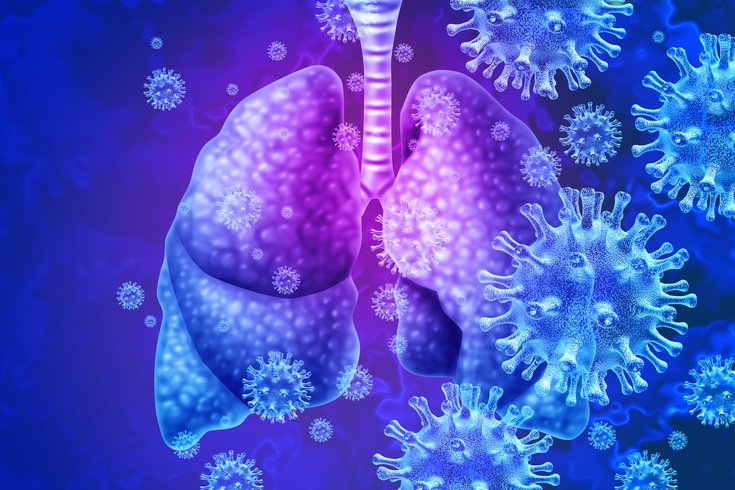
January 12, 2021
 Source/Image licensed from Ingram Image
Source/Image licensed from Ingram Image
Pneumonia is an infection that inflames the lungs causing coughing with phlegm, fever, chills and difficulty breathing. It can be caused by a variety of pathogens, including the coronavirus.
Scientists may have uncovered the reason pneumonia caused by COVID-19 lasts longer than pneumonia resulting from other pathogens.
In a study published in the journal Nature, Northwestern Medicine researchers likened the way COVID-19 pneumonia spreads throughout the lungs to the way multiple wildfires overcome a forest.
Other types of pneumonia tend to spread through large regions of the lungs quickly. A SARS-CoV-2 infection, however, starts in several small areas of the lungs and then hijacks the lungs' own immune cells to slowly spread the infection over a matter of days or weeks.
It is a process that is very similar to the way multiple wildfires can devastate a forest. This slow and steady burn may be why COVID-19 pneumonia lasts longer and can cause more damage than other viral or bacterial-related pneumonia, the researchers said.
The long course of the disease allows the coronavirus to do more damage as it continuously fuels the fever, low pressure and organ damage. These complications — and not the severity of the infection itself — may be the root cause of the severe cases being observed in some COVID-19 patients, the researchers explained.
Pneumonia is an infection that inflames the air sacs in one or both lungs, causing coughing with phlegm, fever, chills and difficulty breathing. It can be caused by a variety of pathogens, including influenza and the common cold, according to the Mayo Clinic.
Antibiotics can treat bacterial pneumonia, but not viral cases like those caused by COVID-19. Severe COVID-19 infections can lead to acute respiratory distress syndrome and the need for breathing support.
By comparing the immune cells of 88 COVID-19 pneumonia patients with cells from 211 patients with other types of viruses or bacteria, the researchers also discovered that macrophages and T cells are the immune cells that treatments need to be target to reduce inflammation in the lungs.
Dr. Scott Budinger, chief of pulmonary and critical care medicine at Northwestern University, said they are planning to conduct a clinical trial early this year on an experimental drug that targets the inflammatory response of these cells.
"Our goal is to make COVID-19 mild instead of severe, making it comparable to a bad cold," Budinger said.